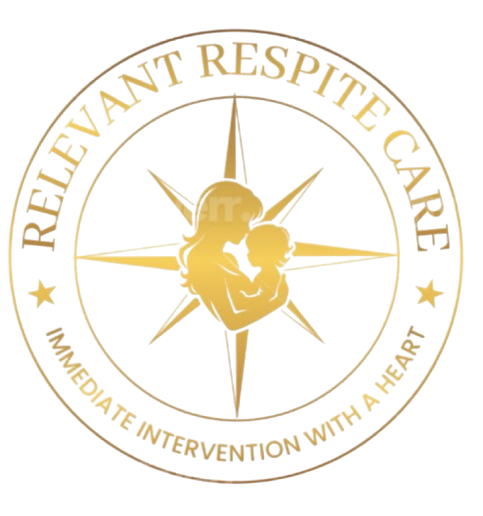Introduction: The Unseen Struggle of Hospital Staff
Doctors, nurses, and hospital personnel are the backbone of our healthcare system—working long hours, making critical decisions, and often sacrificing their own well-being to care for others. But what happens when the caregivers need care themselves?
Between grueling shifts, overnight on-call duties, and the emotional toll of patient care, healthcare workers frequently face exhaustion, burnout, and mental fatigue. Yet, taking a break isn’t always an option when lives are on the line.
That’s where respite care for hospital staff comes in.
This specialized service provides short-term relief for medical professionals, allowing them to rest, recharge, and return to their duties with renewed focus—without ever leaving the hospital.
In this post, we’ll explore:
-
Why hospital staff desperately need respite care
-
How on-site respite services work
-
The benefits for both healthcare workers and patients
-
How hospitals and healthcare systems can implement these programs
Why Hospital Staff Need Respite Care Now More Than Ever
Healthcare workers operate in high-stress, high-stakes environments where fatigue can lead to:
-
Medical errors (studies show sleep-deprived doctors are more prone to mistakes)
-
Burnout and mental health struggles (nurses have higher rates of depression than the general population)
-
Decreased job satisfaction and higher turnover (leading to staffing shortages)
Between 12-hour shifts, overnight calls, and emotional strain, many healthcare professionals don’t have time for proper rest—even when they’re technically “off-duty” but still on-site.
The Dangerous Reality of Healthcare Worker Fatigue
-
A Johns Hopkins study found medical errors may be the third-leading cause of death in the U.S.—many linked to provider exhaustion.
-
60% of nurses report feeling burned out, with many considering leaving the profession.
-
Residents and interns often work 80+ hours per week, leading to chronic sleep deprivation.
Respite care offers a practical, immediate solution—giving hospital staff a chance to rest without going home, ensuring they stay sharp and emotionally resilient.
How Respite Care for Hospital Staff Works
Unlike traditional respite care (which assists family caregivers), hospital-based respite services are designed for doctors, nurses, and medical teams who need short-term breaks during shifts.
Key Features of Hospital Staff Respite Programs:
✔ On-Site Rest Pods or Quiet Rooms – Private, comfortable spaces for power naps or meditation.
✔ Professional Relief Staff – Temporary coverage so workers can step away without patient care suffering.
✔ Mental Health Support – Access to counselors or stress-relief activities.
✔ Flexible Scheduling – Short breaks (20-30 mins) or longer rests during extended shifts.
Who Benefits Most?
-
Emergency Room Staff – High-intensity environments where burnout is common.
-
Surgeons & Anesthesiologists – Mentally draining roles requiring peak focus.
-
Night Shift Workers – Disrupted circadian rhythms lead to chronic fatigue.
-
Residents & Interns – Often overworked with little time for self-care.
The Proven Benefits of Respite Care for Healthcare Workers
1. Reduces Medical Errors
-
Rested doctors and nurses make fewer mistakes, improving patient safety.
2. Lowers Burnout & Turnover Rates
-
Hospitals with respite programs see higher staff retention.
3. Boosts Mental Health
-
Even short breaks reduce cortisol levels (the stress hormone).
4. Enhances Patient Care
-
Fresh, alert providers offer better diagnoses, communication, and empathy.
5. Increases Job Satisfaction
-
Workers feel valued and supported, leading to higher morale.
How Hospitals Can Implement Respite Care Programs
1. Designated Rest Spaces
-
Convert unused rooms into nap pods, meditation zones, or quiet lounges.
2. Partner with Respite Care Providers
-
Bring in trained professionals to temporarily relieve staff during breaks.
3. Promote a Culture of Self-Care
-
Encourage staff to use respite services without guilt—it’s not a luxury, it’s a necessity.
4. Measure Impact & Adjust
-
Track staff well-being, error rates, and retention to refine the program.
Final Thoughts: Caring for Those Who Care for Us
Healthcare workers are heroes—but even heroes need rest. Respite care for hospital staff isn’t just a perk; it’s a critical component of a sustainable healthcare system.
By investing in these programs, hospitals can:
✅ Save lives (reducing fatigue-related errors)
✅ Retain top talent (combating the nursing shortage)
✅ Improve patient outcomes (through better-rested providers)
Is Your Hospital Ready to Support Its Staff?
If you’re a healthcare administrator, nurse leader, or medical professional advocating for change, now is the time to act.
📞 Contact us to learn how respite care solutions can be tailored for your facility.
📅 Schedule a consultation to discuss implementation strategies.

